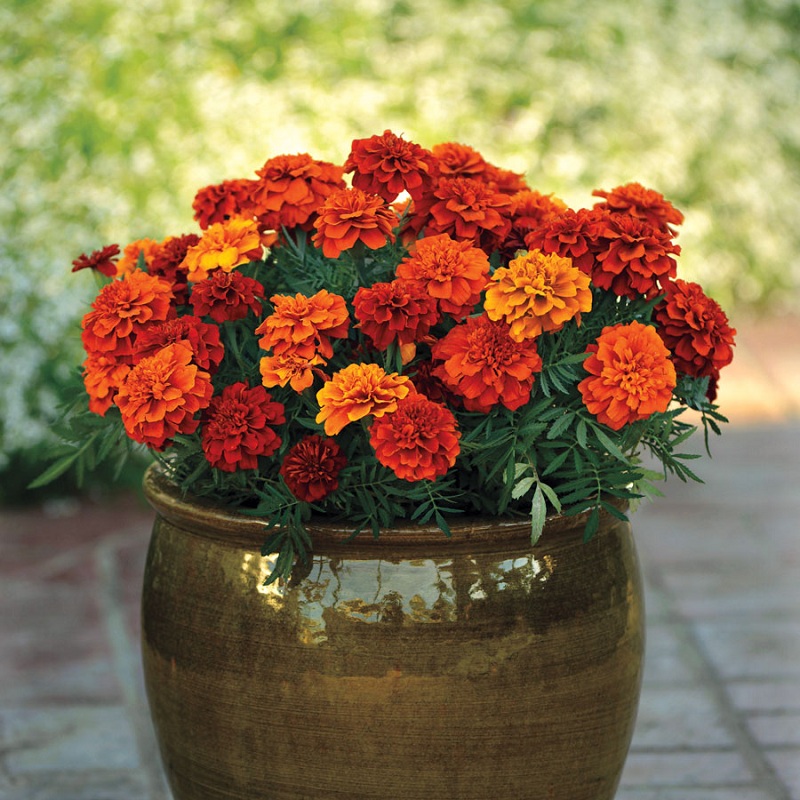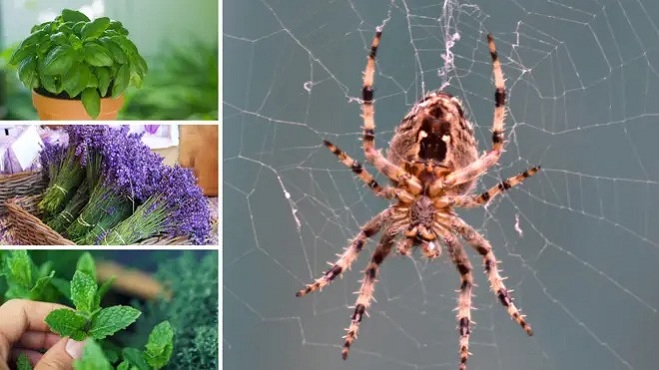Say goodbye to pesky pests invading your home this summer. Instead of resorting to chemical sprays, why not embrace the power of nature? We’ve compiled a list of 8 plant varieties that not only add a touch of greenery to your space but also naturally repel spiders, mosquitoes, and other insects. Transform your home into a pest-free sanctuary with these botanical solutions.
Lavender
Who said pest control had to smell like toxic chemicals? Repel moths, fleas, flies, and mosquitoes with the fragrant beauty of lavender plants in your home. Lavender is not only visually appealing but also possesses natural repellent properties against various insects, including spiders. Lavender’s essential oil contains compounds that act as natural repellents for pests, making it a chemical-free option for keeping these unwanted creatures at bay.
The strong aroma of lavender serves as a deterrent for many insects. Spiders and other pests often steer clear of areas where the scent of lavender is present. This makes it a natural and effective way to keep these critters out of your living spaces.
Beyond its repelling abilities, lavender offers additional benefits, such as its use in aromatherapy to reduce stress and promote sleep. Having lavender plants in your home can create a relaxing ambiance while also deterring unwanted insects. So go ahead and embrace the gorgeous lavender plant as a natural pest control solution!

Peppermint
It might smell minty-fresh to you, but insects hate the smell of peppermint. This aromatic herb is a potent natural repellent that can effectively keep pests like mosquitoes, spiders, and other unwanted insects at bay. By cultivating peppermint plants in pots indoors, you can harness its pest-repelling properties without worrying about it becoming invasive in your garden.
Peppermint’s strong scent is known to deter a wide range of pests due to the presence of compounds like menthol and pulegone. These compounds create an environment that insects find inhospitable, making your home an unwelcome place for them. Embracing the refreshing scent of peppermint not only adds a pleasant aroma to your space but also offers a chemical-free and environmentally friendly way to keep insects out.

Lemongrass
During the summer, the soothing glow of citronella candles can help keep pesky bugs at bay. But did you know that the citrusy aroma that repels insects actually comes from lemongrass? Consider adding a touch of natural elegance to your home by cultivating lemongrass, a lovely and practical grass variety that emits a scent reminiscent of citronella.
By planting lemongrass in your indoor space, you essentially create a perpetual “candle” of citronella, offering a continuous and pleasant fragrance that deters mosquitoes and other bothersome pests. This charming and versatile grass not only enhances your home’s aesthetic but also provides an effective and natural solution for keeping unwanted insects from invading your living areas.
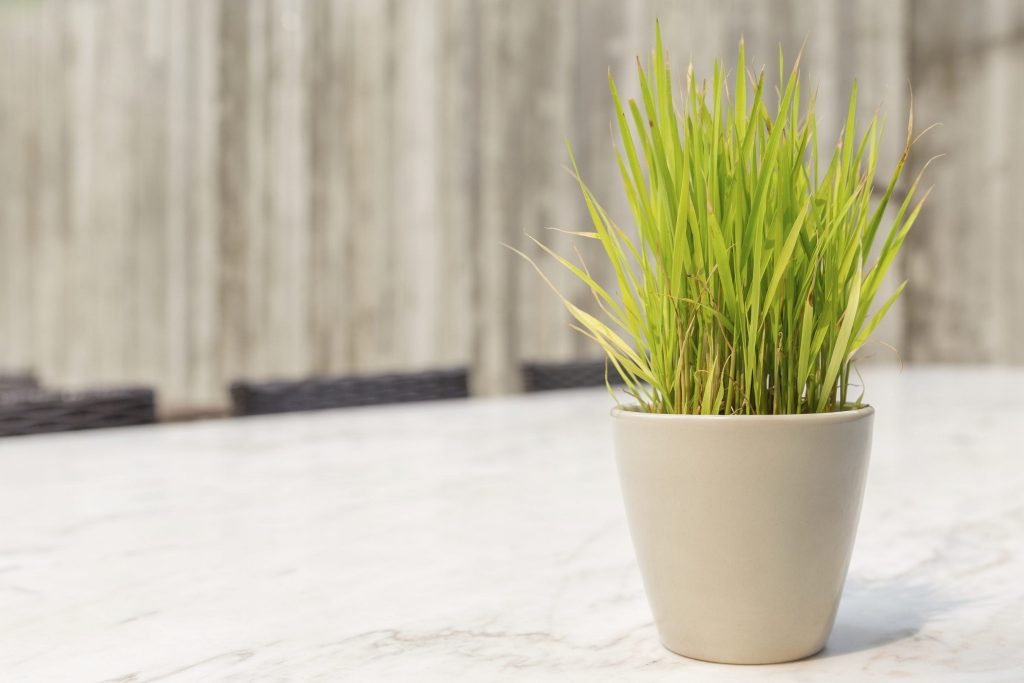
Agastache cana (mosquito plant)
Boasting tall stems adorned with delicate purple flowers, the Agastache cana bears a striking resemblance to lavender plants when viewed from a distance. Just like its lavender counterpart, this plant emits an aroma that is incredibly displeasing to mosquitoes.
The Agastache cana not only adds visual appeal to your indoor space with its charming blooms but also serves as a natural defense against mosquitoes. By incorporating this plant into your home, you create an environment that repels these pesky insects while enjoying the subtle and pleasant fragrance that sets Agastache cana apart.
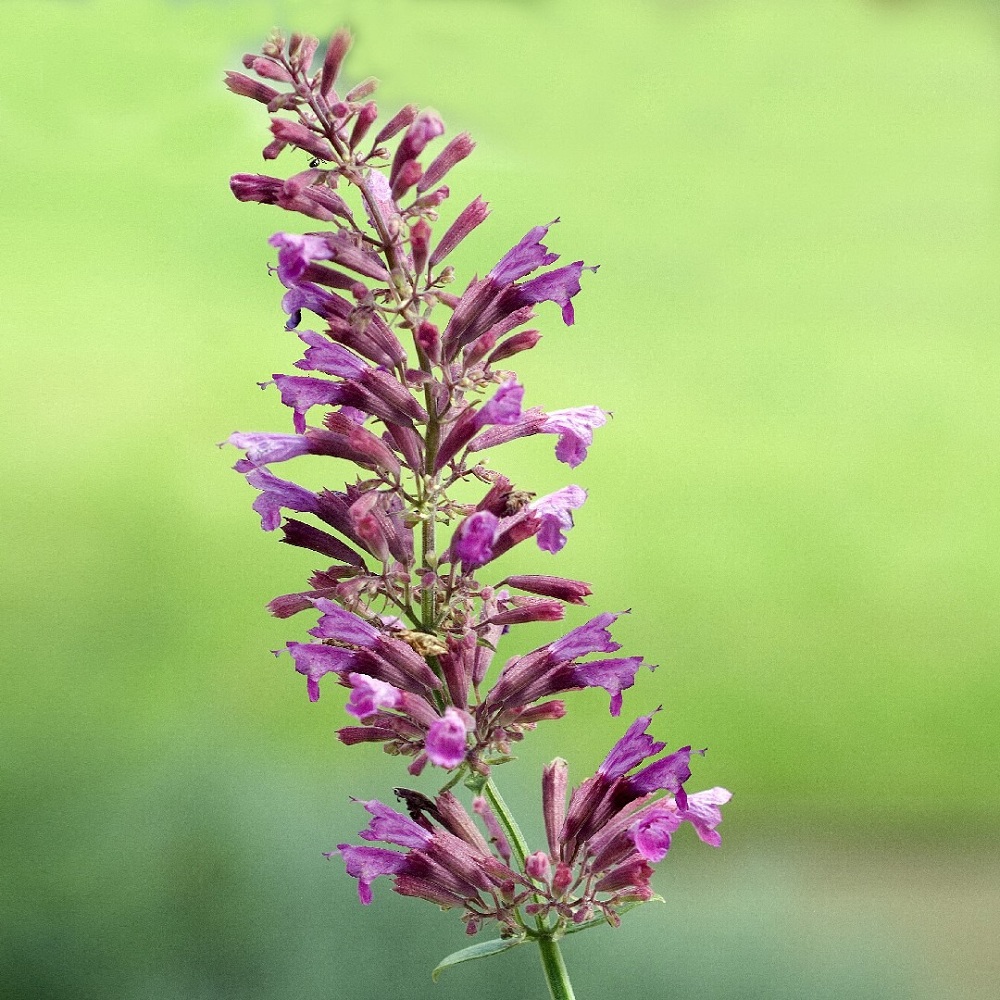
Basil
Beyond its culinary versatility, this kitchen herb boasts impressive bug-repelling properties. Basil’s aromatic fragrance and natural oils are potent deterrents for various pests. The benefits don’t stop there – having a basil plant indoors ensures a steady supply of fresh leaves to enhance your dishes, from pizzas to salads and beyond.
By welcoming basil into your home, you not only elevate your culinary creations but also establish a formidable defense against unwanted insects. Embrace the dual advantages of flavor and functionality with this fragrant and practical addition to your indoor space.

Rosemary
If you’re a fan of incorporating rosemary into your culinary endeavors, you’re in for a treat. Not only will you enjoy a ready supply of fresh sprigs to elevate your meals and beverages, but you’ll also fortify your living space against pesky insects.
Rosemary’s aromatic charm extends beyond its use in cooking – it’s a natural bug repellent too. Embrace the dual benefits of flavor enhancement and pest control by cultivating this versatile herb indoors. With rosemary as your ally, you can savor your dishes and create an unwelcome environment for bugs, all in one aromatic package.
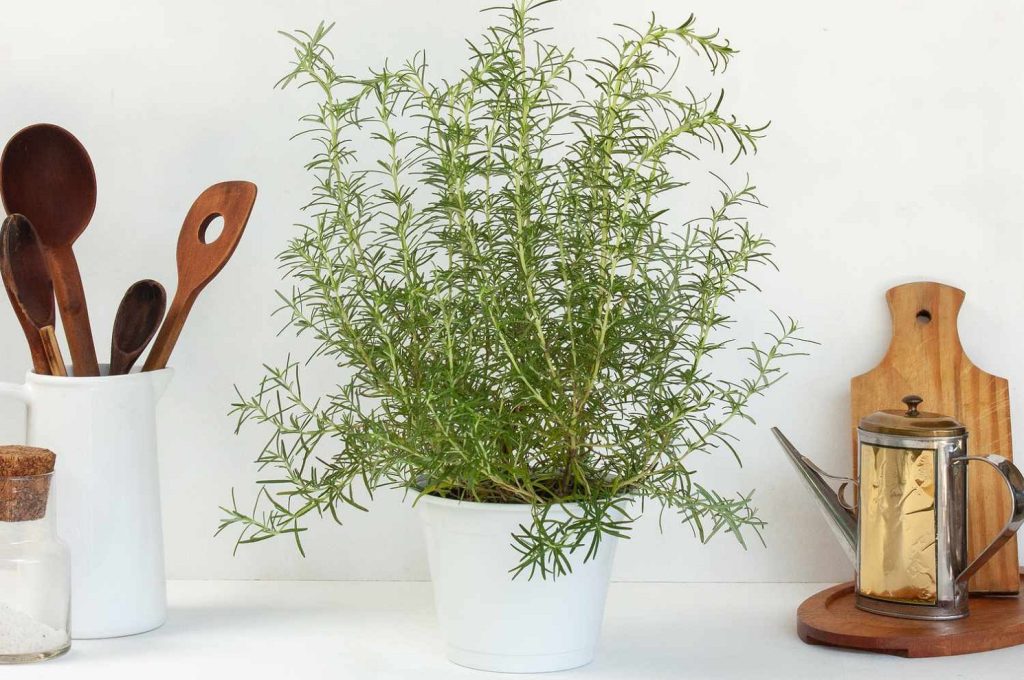
Lemon balm
Lemon balm, with its invigorating citrus scent, serves as an effective insect deterrent. Much like its minty counterpart, it’s recommended to confine lemon balm to a pot to prevent its exuberant growth. As a delightful bonus, this versatile plant is not only a guardian against pests but also a source of delightful tea.
Harness the power of lemon balm to create an insect-resistant haven while relishing its zesty aroma. By containing its growth and embracing its multifaceted nature, you’ll have both a shield against bugs and the makings of a refreshing cup of tea – truly a win-win for your home and senses.
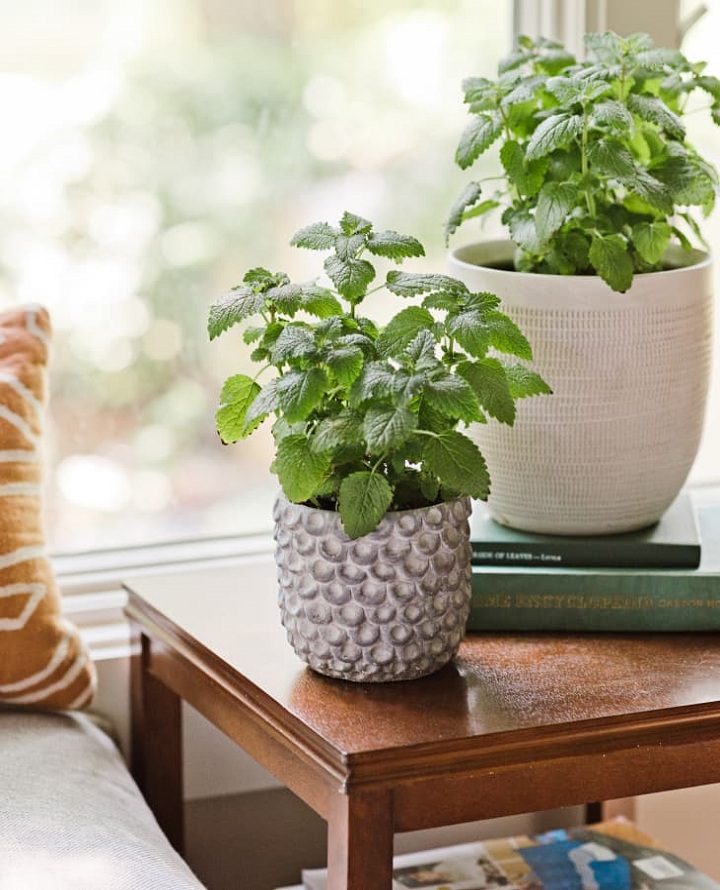
Marigolds
Embrace the beauty of these exquisite flowers whether potted indoors or gracing your garden, as they double as natural insect repellents. These blooms house the compound pyrethrum, a well-known ingredient in various insect repellent formulations. Enhance your surroundings with their aesthetic appeal while benefiting from their innate insect-deterring properties.
By adorning your space with these alluring flowers, you’re not only adding visual charm but also implementing a strategic defense against pesky insects. Revel in their dual role as both decorative accents and guardians of insect-free tranquility.
